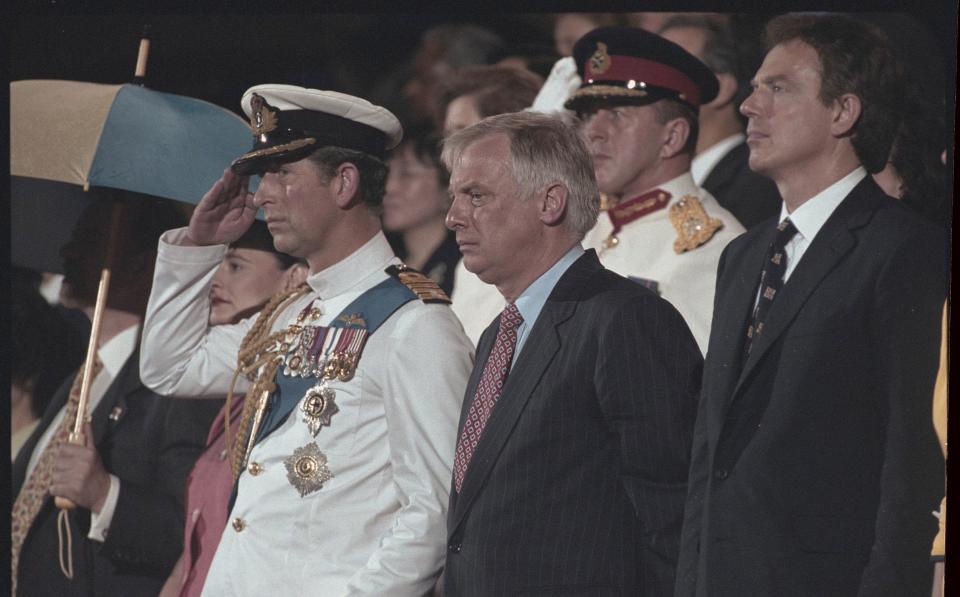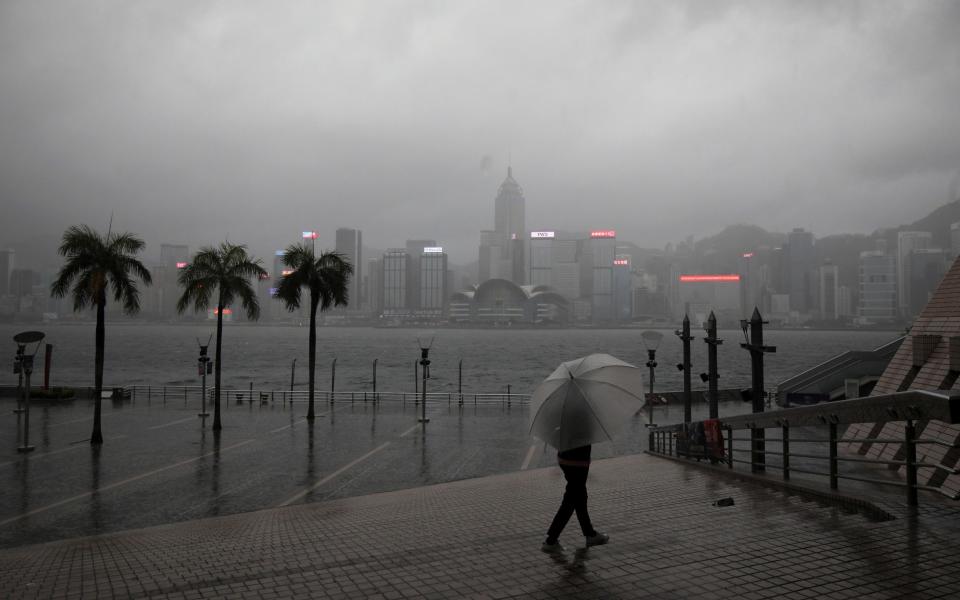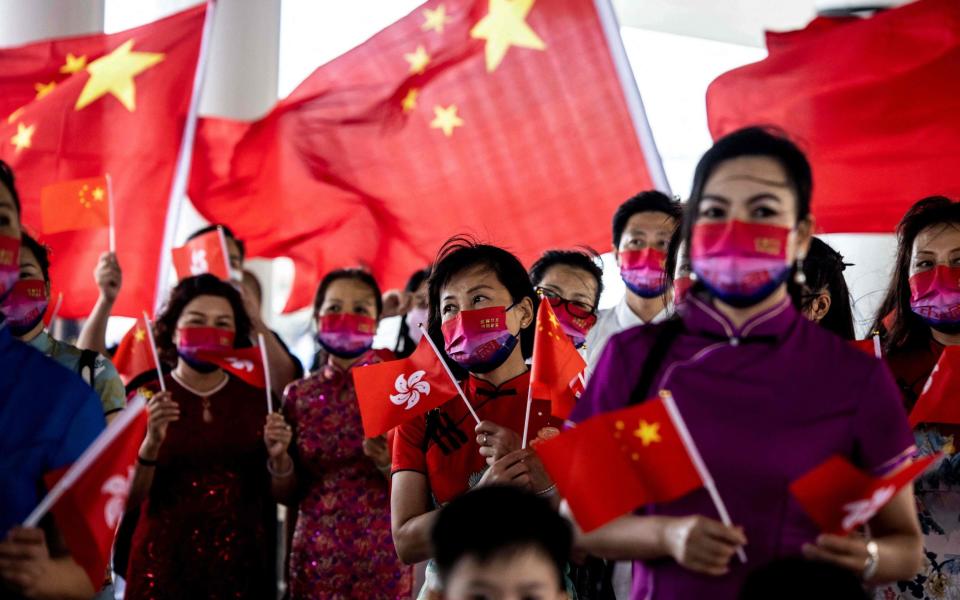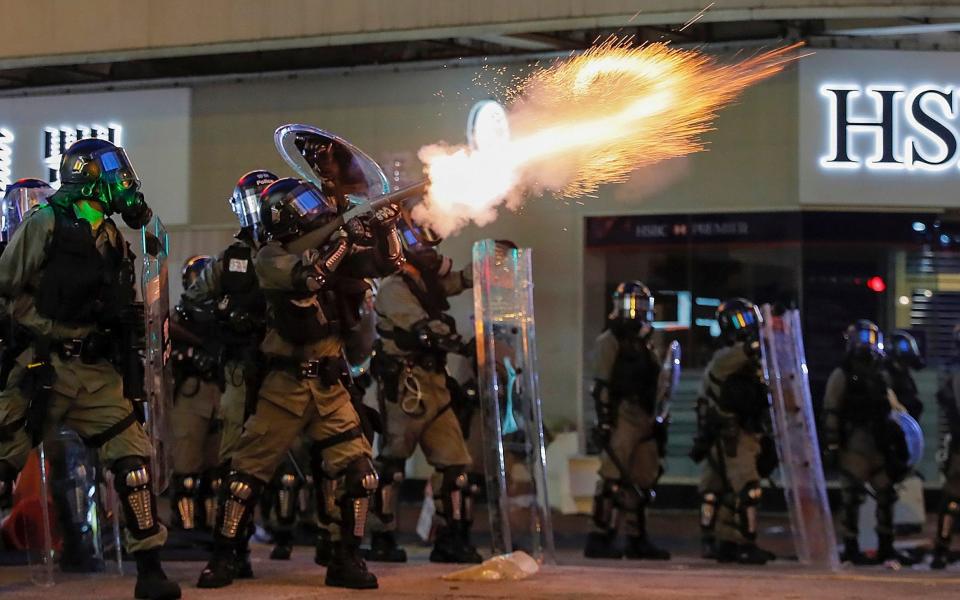Hong Kong handover anniversary: a reminder that freedom can never be taken for granted

The heavy rain on June 30, 1997 is one of the few things that people from across the political divide in Hong Kong can agree on.
As local politicians braved the downpour to take their positions on the balcony of the colonial Legislative Council Building – designed by the same architect behind Buckingham Palace’s public-facing facade – the city’s residents watched with a mixture of trepidation and excitement.
Hong Kong, a British colony for the past 99 years, was on the cusp of being transferred back to China. Its future hung in the balance.
"This is the moment that all Chinese feel proud - Hong Kong is formally bidding farewell to our colonial days,” proclaimed long-time democrat Martin Li to the thousands gathered.
Standing nearby on the balcony was Lee Wing-tat, another pro-democracy lawmaker. He was braced for a crackdown on the opposition, but was also quietly optimistic.
“Back then, I really thought there was hope for ‘one country two systems’,” he said, referring to the agreement under which Beijing took control of Hong Kong – intended to preserve the city’s freedoms and rights from the more repressive Chinese government.

At home on the sofa, 9-year-old Sam, whose name has been changed to protect his identity, was watching proceedings on TV with his family.
When the camera rested on Chris Patten, the last British governor of Hong Kong, he remembered his father saying: “Sinner of a thousand years."
When Sam asked his father what he meant, his father just replied that one day he would understand.
Not everyone was watching – in the city’s courts, lawyer Ronny Tong Ka-wah was working overtime that night.
He was in two minds about the seismic shift that was underway. Earlier that year, he had visited Singapore to consider moving there and escaping Chinese-controlled Hong Kong.
But in the end, he came back to the city. “I thought: ‘I have to give one country two systems a chance,” he said.
When Sam woke up on July 1, Hong Kong was Chinese rather than British, but he said it was just like any other day - except for the nationalities on their identification documents. “Life remained completely unchanged. Everything was normal like before.”

Mr Lee was also quietly optimistic that Hong Kong might be able to maintain its independence and unique character.
And for many years, it did. Chinese government officials appeared willing to listen to different opinions. There were elections.
“It turns out the worst case didn’t happen, at least not in the first few years,” he said. “But everything fell off a cliff after 2019.”
The mass pro-democracy protests that rocked the city that year and the brutal crackdown that followed were a watershed moment for Hong Kong.
By that time, Sam was teaching Liberal Studies, a subject encouraging critical thinking about society, governance and politics. He noticed students that had previously visited Shenzhen on the mainland for shopping trips at the weekend starting to become more hostile towards China. He blamed it on “political suppression”.

In 2020, Beijing introduced a sweeping new national security law that outlawed any sort of dissent. Liberal Studies has since been overhauled and national security lessons have become mandatory.
Sam admitted to feeling despondent and said he wants to leave the city soon. “Hong Kong has become a city without hope, it is no longer vibrant,” he said.
Not everyone feels that way.
Mr Tong established the activist pro-democracy Civic Party back in the early 2000s. In 2015, he quit to advise the government. Some called him an apostate, but he has made his peace with Hong Kong’s new direction.
Now a 71-year-old senior counsel, he said he thinks the city is much more open now compared to during its colonial days and it has made him feel proud of his Chinese identity.
For Mr Tong, the new laws are no reason that Hong Kong cannot continue to flourish.
“There shouldn’t be any conflict between the idea of democracy and national security,” he said. “It doesn’t mean that Hong Kong has no room for democratic reform.”
He said he was optimistic about the city’s future: “As long as we still have the country’s support, I believe ‘one country two systems’ will remain robust.”

Despite the UK’s criticism of China’s upholding of ‘one country, two systems’, it is still trumpeted by China, including by Xi Jinping when he visited the city this week for the 25th anniversary of the handover.
In an echo of that fateful night in 1997, it rained heavily again — but the speeches no longer held the same hopeful power for pro-democracy activists such as Mr Lee.
“They are just slogans — the government does not genuinely want it to be true,” he said. “I don’t think I will witness Hong Kong democratise in my lifetime.”


